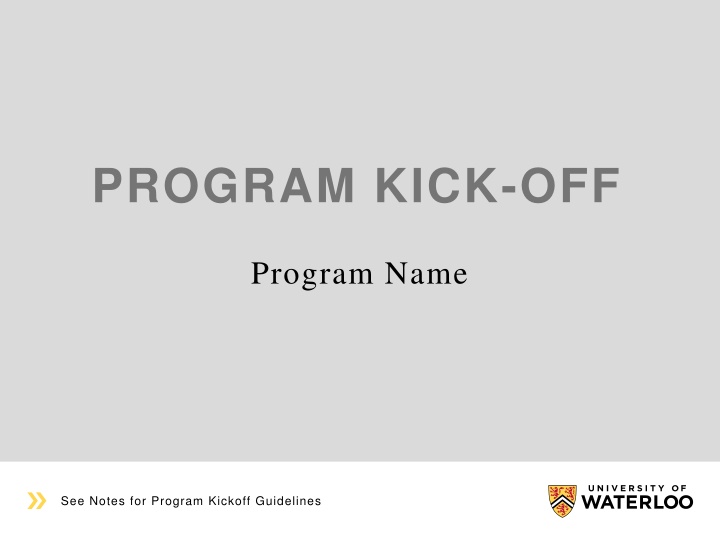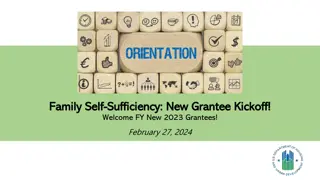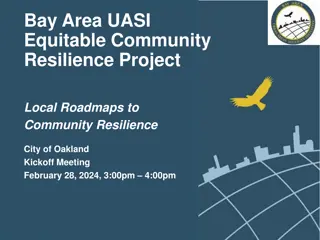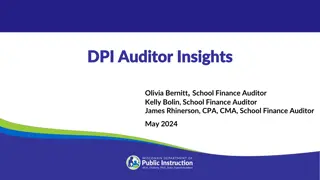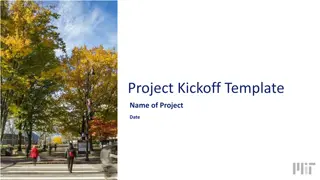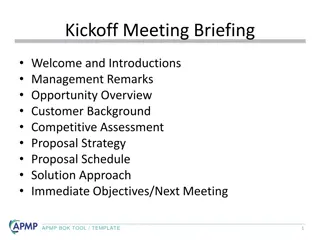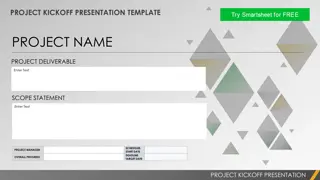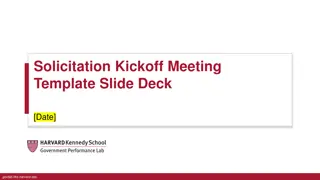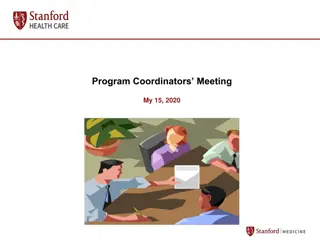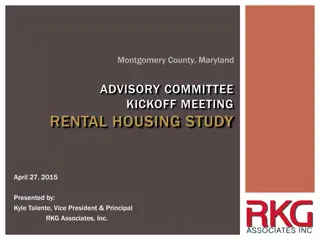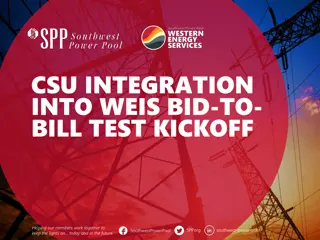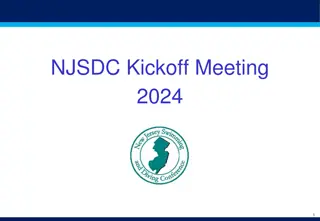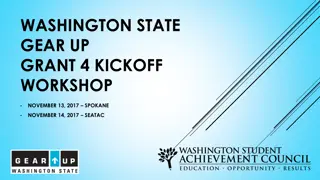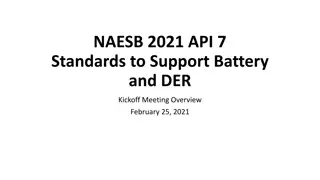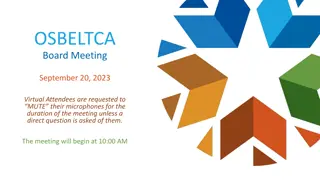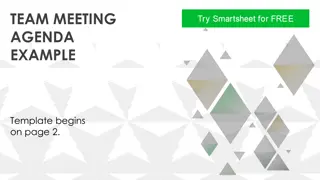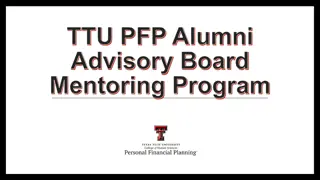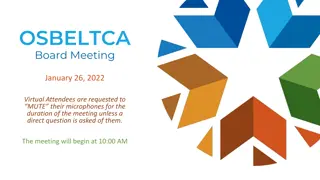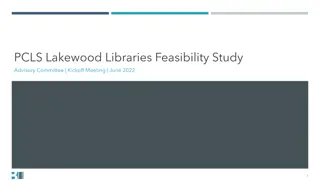Comprehensive Program Kickoff Meeting Guidelines and Agenda
This detailed document outlines key aspects of a successful program kickoff meeting, including introductions, sponsor message, lessons learned, vision and goals, benefits, scope, success criteria, roadmap, milestones, and team governance.
Download Presentation

Please find below an Image/Link to download the presentation.
The content on the website is provided AS IS for your information and personal use only. It may not be sold, licensed, or shared on other websites without obtaining consent from the author.If you encounter any issues during the download, it is possible that the publisher has removed the file from their server.
You are allowed to download the files provided on this website for personal or commercial use, subject to the condition that they are used lawfully. All files are the property of their respective owners.
The content on the website is provided AS IS for your information and personal use only. It may not be sold, licensed, or shared on other websites without obtaining consent from the author.
E N D
Presentation Transcript
PROGRAM KICK-OFF Program Name See Notes for Program Kickoff Guidelines
KICKOFF MEETING AGENDA Introductions Message from Program Sponsor Round Table lessons learned Program Vision & Goals Program Benefits Program Scope Program Success High-level Milestones Program Team & Governance PMO Services and Methodologies Questions & Discussion
INTRODUCTIONS Introduction of team members in audience and any other stakeholders
SPONSOR MESSAGE Sponsor Message What are the business drivers for this program? What is the current situation?
ROUND TABLE Lessons learned from other initiatives, projects, programs: Do s: Don ts:
PROGRAM VISION & GOALS Vision Goals
PROGRAM BENEFITS The benefits of (enter program name) are as follows: 1. Xxx 2. Yyy 3. Etc.
PROGRAM SCOPE In Scope: Out of Scope
PROGRAM SUCCESS What is success for this program?
PROGRAM ROADMAP Expected program deliverables and outcomes High Level timeline of the program components (initiatives & projects) (visual)
HIGH-LEVEL MILESTONES Component Milestones Target Date I MMM YYYY MMM YYYY MMM YYYY MMM YYYY MMM YYYY II MMM YYYY MMM YYYY MMM YYYY MMM YYYY MMM YYYY III MMM YYYY Note: The high level scope, milestones and target dates may change when the project team begins the planning phase of the project.
PROGRAM TEAM & GOVERNANCE Program Role, Name Program Role, Name Program Role, Name Program Role, Name Program Role, Name Program Role, Name Program Role, Name Program Role, Name Program Role, Name Program Role, Name Program Role, Name Program Role, Name
CONSTRAINTS & DEPENDENCIES Constraints Dependencies
AVAILABLE PMO SERVICES Project Management Office services that are available for this project: Maintain library of tools, processes, templates, and best practices for project, program, and systems development life cycle methodologies Assignment of an experienced, senior Project and Program Managers Coordinate training and provide consultation on project and program management concepts and best practices Improve communication and information sharing for projects and programs Provide program and project facilities and equipment Conduct program and project health checks Contact: Pam Fluttert https://uwaterloo.ca/ist-project-management-office/
METHODOLOGY Program management methodology: 3 life cycle phases Program Definition: formation, preparation, and initiation of the program by defining the program's vision, components, benefits, scope, roles & responsibilities, and authorizing the program to begin Program Benefit Delivery: establishes and executes plan for how the scope and benefits will be realized with program components (projects & initiatives), when components and benefits will be completed and realized, and who will be responsible Program Closure: finalize and transition all component activities, complete all deliverable(s), measure success and benefit realization, and formally close the program Projects within the program will follow a project management methodology that will be explained during project initiation
METHODOLOGY Project management methodology: Inputs and deliverables vary depending upon project size, complexity, timeline, and project management approach (e.g. agile, interactive, waterfall) 4 life cycle phases Initiation: define the project objectives, scope, roles & responsibilities, and obtains authorization to begin Planning: establish work break down, how it will be achieved, when, and by who. Execution: manage time, scope, procurement, risk, communications, resources, costs/budget, changes, and quality. Track and report on project status. Closure: finalize all activities, complete deliverable(s), measure success, and formally closes the project
QUESTIONS & DISCUSSION Questions / Comments?
